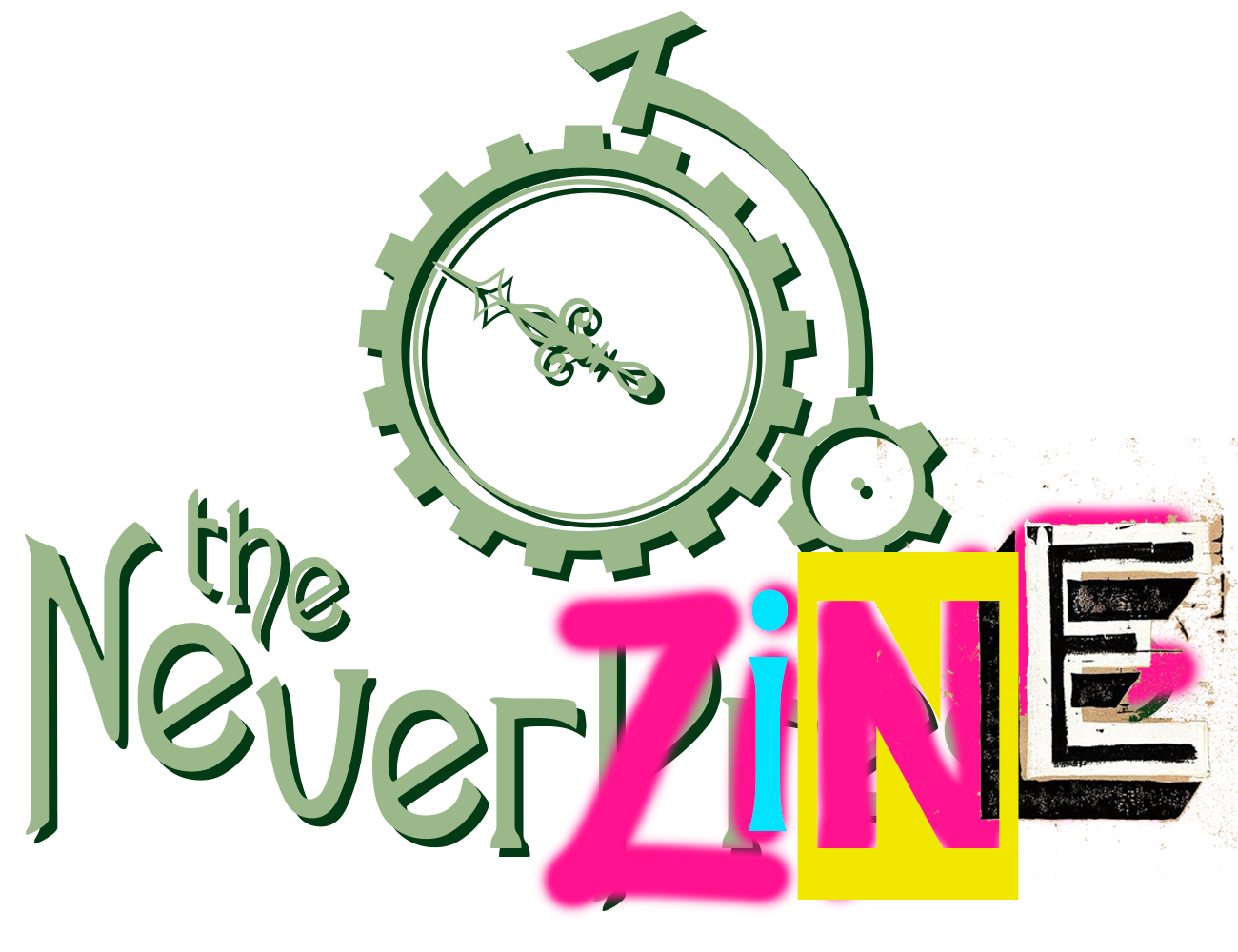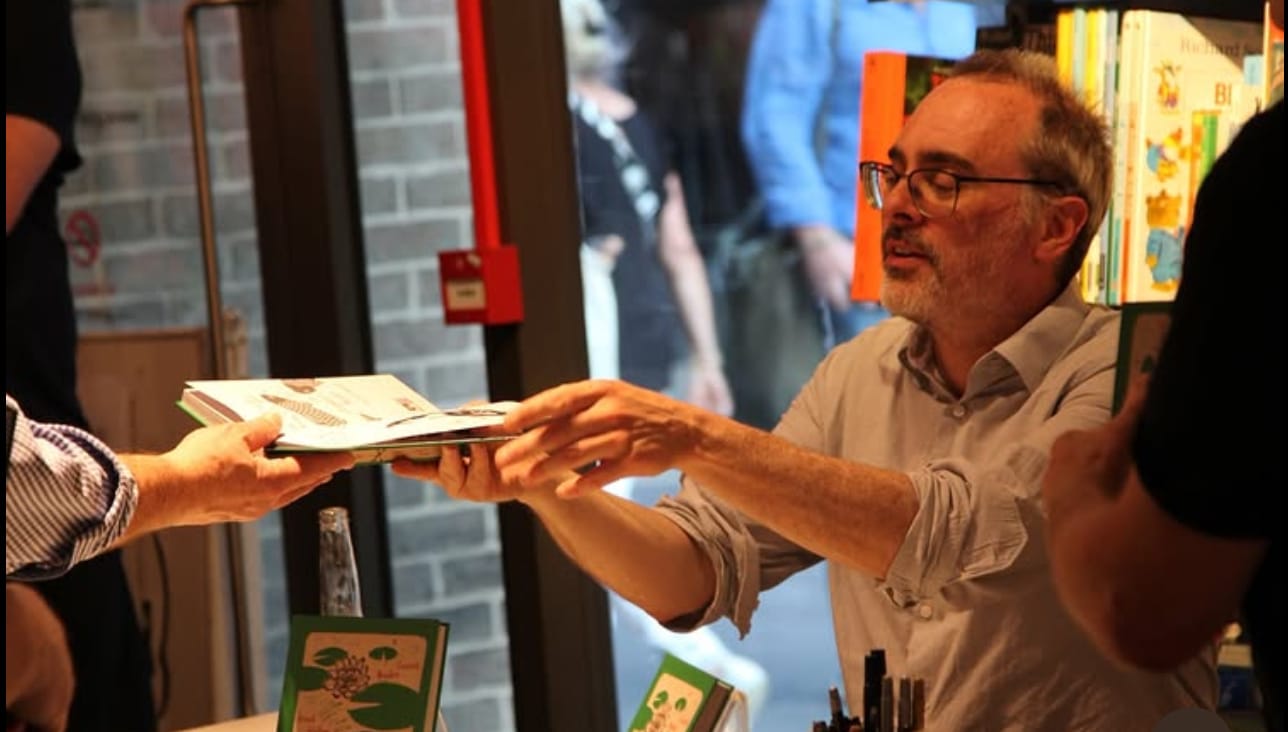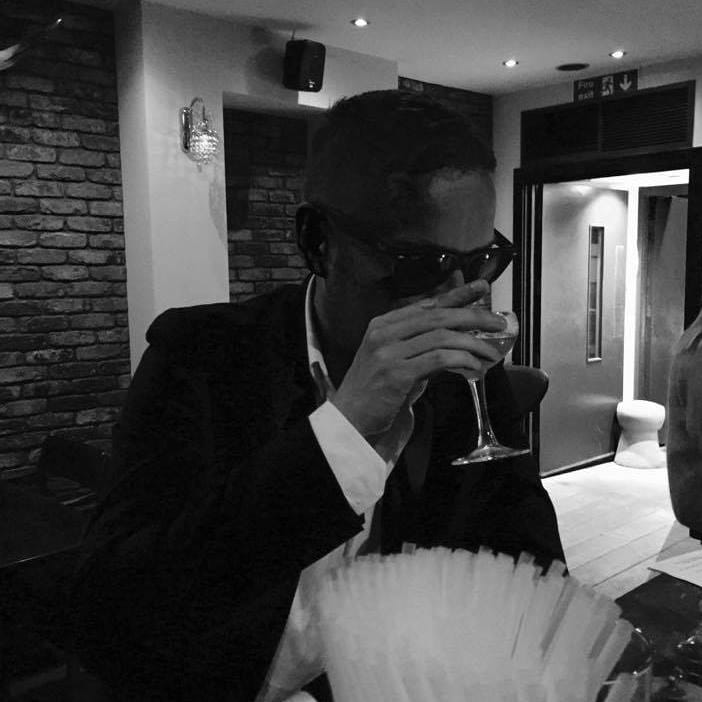"Comics studies is a fundamentally interdisciplinary field, and it provides new tools to think about all sorts of things from 19th Century Literature to generative AI diffusion models."
We were introduced to Gareth via the great Lucy Sullivan (LINK TO ARTICLE). "If you want to know more about this artform, then you absolutely must meet Gareth" - and so we reached out, and lo he replied. An experimental comic creator and artist, Gareth is also a venerated academic and font of knowledge in this medium, which can seem impenetrable to the lay, like us. Gareth was welcoming and generous with his time, and we really get into some hefty stuff here - it's amazing. So let's hang about no longer and get stuck in...
Gareth, can you give us a rundown of your creative journey so far
I studied printmaking at the RCA and felt pretty lost for a few years after graduating. I became heavily involved in organising DIY zine and comics fairs with the Alternative Press and Comix Reader collectives, and I was embedded in the small press scene in London between 2007 – 2016. I really learnt a lot about producing, promoting, event organising, building communities and doing everything for yourself, and drew inspiration from zine and DIY music communities alongside comics. I published my first graphic novel The Black Project during that time, and that led to other opportunities. In 2020 I started a PhD in comics studies which deepened my interest in the medium. I officially became a comics Dr earlier this year. Right now, I’m spending most of my time on academic writing and research.

And how did you get into academia – what was the pivot point?
It was around the pandemic time, I wanted to progress into teaching Higher Education, and thought it would be a good way in. Doing the PhD has made me even more obsessed with comics and committed to thinking deeply about the way this strange medium works. Comics studies is a fundamentally interdisciplinary field, and it provides new tools to think about all sorts of things from 19th Century Literature to generative AI diffusion models.
Comic Book movies have become the mainstream industry norm – mega productions with GDP to rival some nations. When corporations mine cultures for their stories, heritage and narratives to produce broad mass-media entertainment, do we lose the essence of what made it culturally significant, or does having as many eyes on it as possible broaden understanding and engender intellectual and creative curiosity?
Mass media always appropriates and commercialises. What concerns me more is a lack of spaces for people to get together and develop, reinvent and rethink cultures. As long as there is a space for that, it doesn’t really matter what mass-media churns out, at least in terms of the health of the overall culture. Unfortunately, it seems to me that everything that made cities like London able to produce subcultures is gone. I think there was a lazy assumption that the internet would provide a space for new cultures to emerge, and while the internet has certainly not been altogether negative in this regard, particularly during the pandemic, it’s also clear that online space has become a far less creative place than anyone could have imagined, and that physical spaces that people can access and do whatever in, are the thing that nurtures new cultural forms.
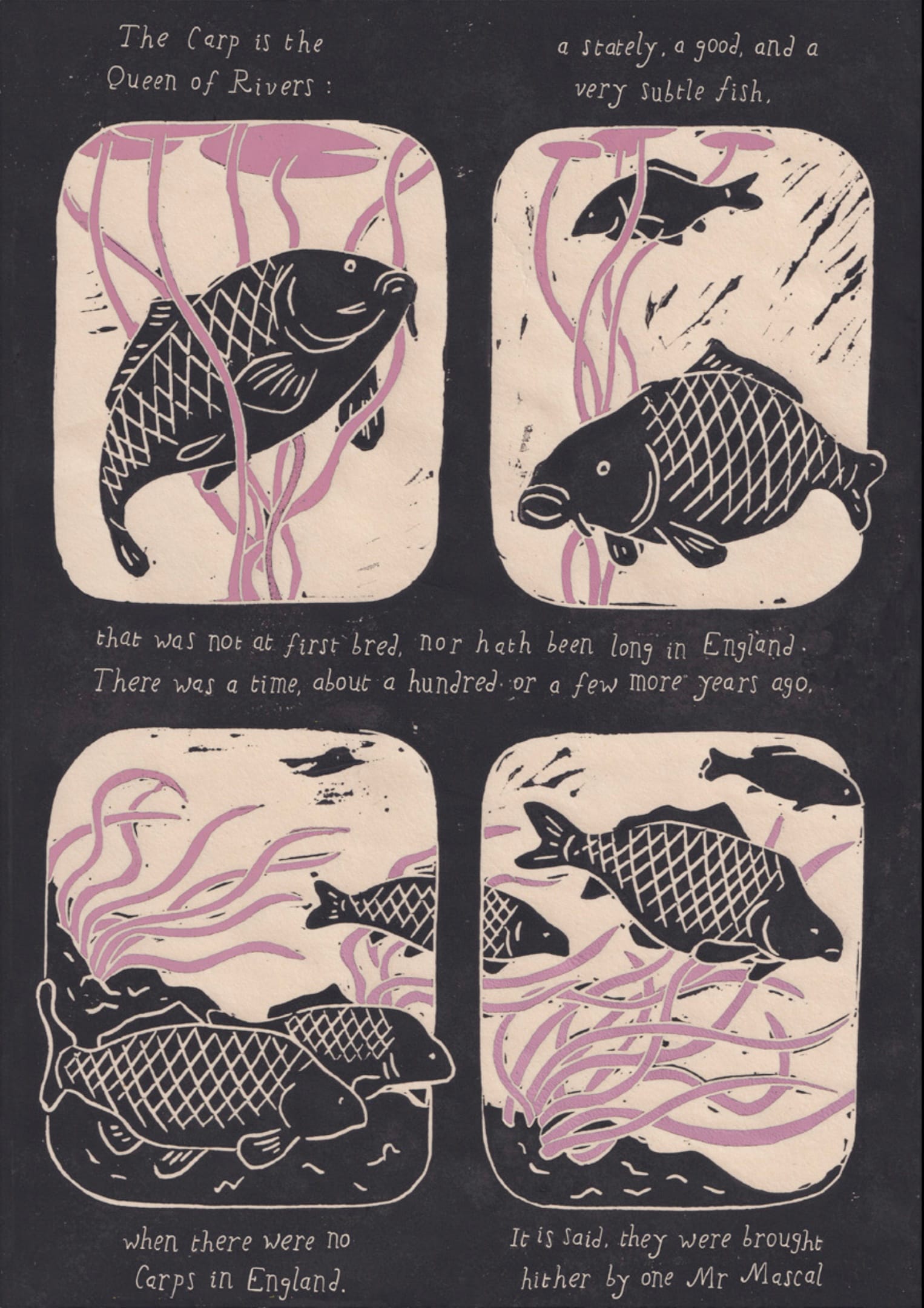
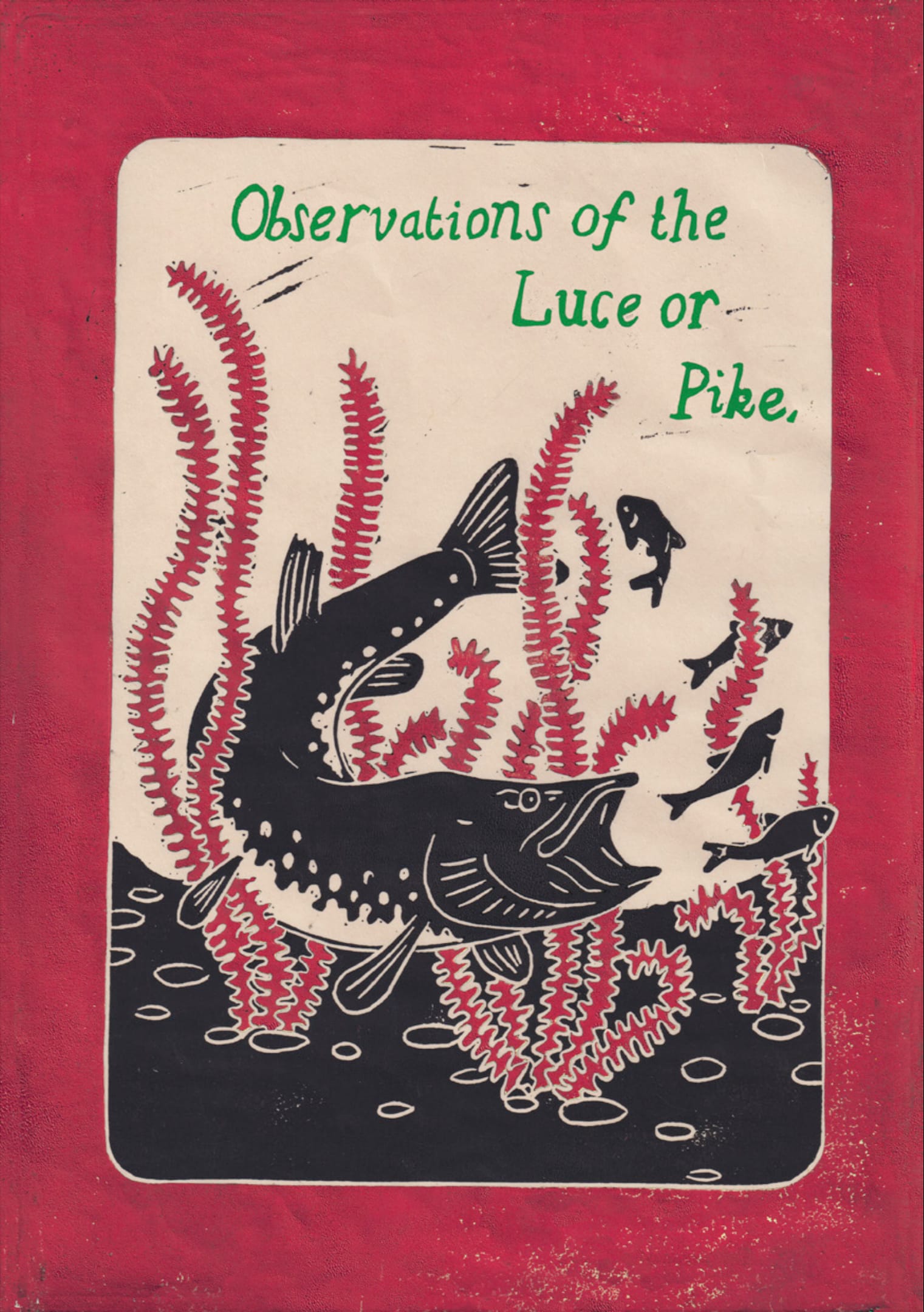
The Compleat Angler, 2025, SelfMadeHero
Can artists pick and choose elements and aspects of movements and schools from the past and disregard the potentially problematic histories associated with them that are unpalatable for modern sensibilities? For instance, can creators find inspiration in Futurism without aligning themselves with its intrinsic political stance? Do we simply take what we want, or must we tie ourselves to the past?
It depends on a lot of things. On one level, no. Artists should be mindful of the way their work will be interpreted, particularly if it contains specific historical references within it, regardless of their intentions or lack of intention. At the same time, the twenty first century has seen the opening out of every cultural product of every period of history to infinite and simultaneous recontextualisation and remix. It’s hard to see how a particular history or political position can find purchase in a cultural product without it being immediately subverted, drained and meme-d into meaninglessness. It can be hard to define where the author is, and therefore where authorial responsibility lies, but even without Gen AI, social media and all the rest, everything ends up as a just another style eventually.
Zine and comic creation is so expressive and wild, without regulation or oversight. It can spill out from anywhere and that’s the point of it – but, as a historian, how do you manage to organise all of it into a ‘history’. Where do you start to create the tapestry? What gets left out?
History itself is a form of story-making. It’s a form of literature in many ways. There’s an interesting book by Benoit Crucifix called Drawing From The Archives where Crucifix shows how some of the post-RAW generation in the US effectively partook in the canonisation of their own works by situating themselves in a narrativized alternative comics tradition. They managed to write a story of comics with themselves at the end of it, through curating art shows, writing articles and designing book collections that drew on the Bill Blackbeard archives. And to be fair, that’s generally how art history has worked and that’s one history of comics. Of course there are many other histories one could write, and many that urgently need writing.
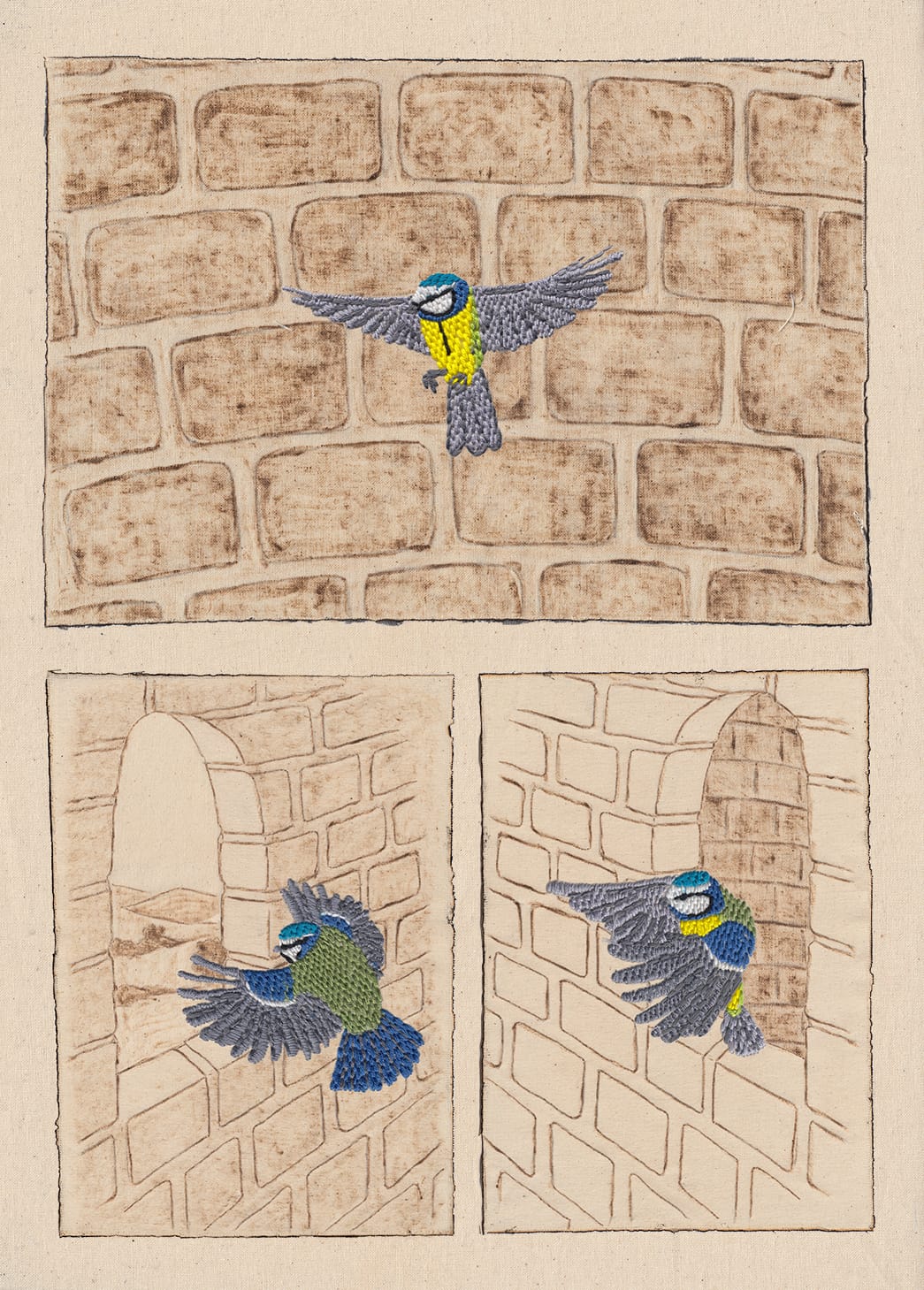
What are the essential reads for anyone interested in comics and zines and looking to piece together the evolution of the industry. The cultural and creative touchstones.
That’s a really difficult one to answer, I’m certainly no comics historian, but I’d recommend anything by David Kunzle. Martin Barker’s book Haunt of Fears is an excellent account of the anti-comics campaigns in the UK, a period of establishment attacks on comics that really isn’t widely known about. Comics and the Origin’s of Manga is a really good recent study by Eike Exner. How Comics Travel by Katherine Kelp Stebbins is a very interesting study. Alison Piepmeier’s Girl Zines: Making Media, Doing Feminism is a really good book on zines. Nicola Streeten has written a book called UK Feminist Cartoons and Comics – A Critical Survey that I’d recommend. But now we’re getting into the realms of academic books that cost over £100, which unfortunately accounts for most of the best academic books. The way that institutional funding works, combined with the pressure for academics to publish research in a way that’s straightforward to evaluate, and the fact that academic publishers need to publish books with a microscopic readership, means that it’s the only model that’s been sustainable. Perhaps that will change in the future.
Have there been schools of thought or movements that have shifted the direction of travel (such as with the French New Wave in cinema)
Webtoons and its fan communities represent a massive shift in the way comics are read and interacted with. But I think in terms of print-based comics, the incredible influx over the last five years of manga work from all kinds of traditions and genres will be a game changer. As a reader it’s a fantastic time, it’ll be interesting to see how western comics will change. For many of the next generation of artists and readers, comics basically means manga, but in order to have a career, younger artists in the UK are going to have to draw inspiration from eastern comics, and reinvent them, rather than appropriate them. I could already point to one or two good examples (and lots of bad examples) of how this is happening, but in terms of the comics industry, there is probably going to be a big shift.
What technologies have we seen that have empowered and enabled creators to thrive over the past, say, 65 years.
For me, scanning, digital technology and offset print has been the most enabling development. My thesis is basically about how the change over from four colour reproduction and steam press printing to digital technology, enabled the rise of the individual comics artist, and has allowed lots of fine art approaches to become part of comics production.
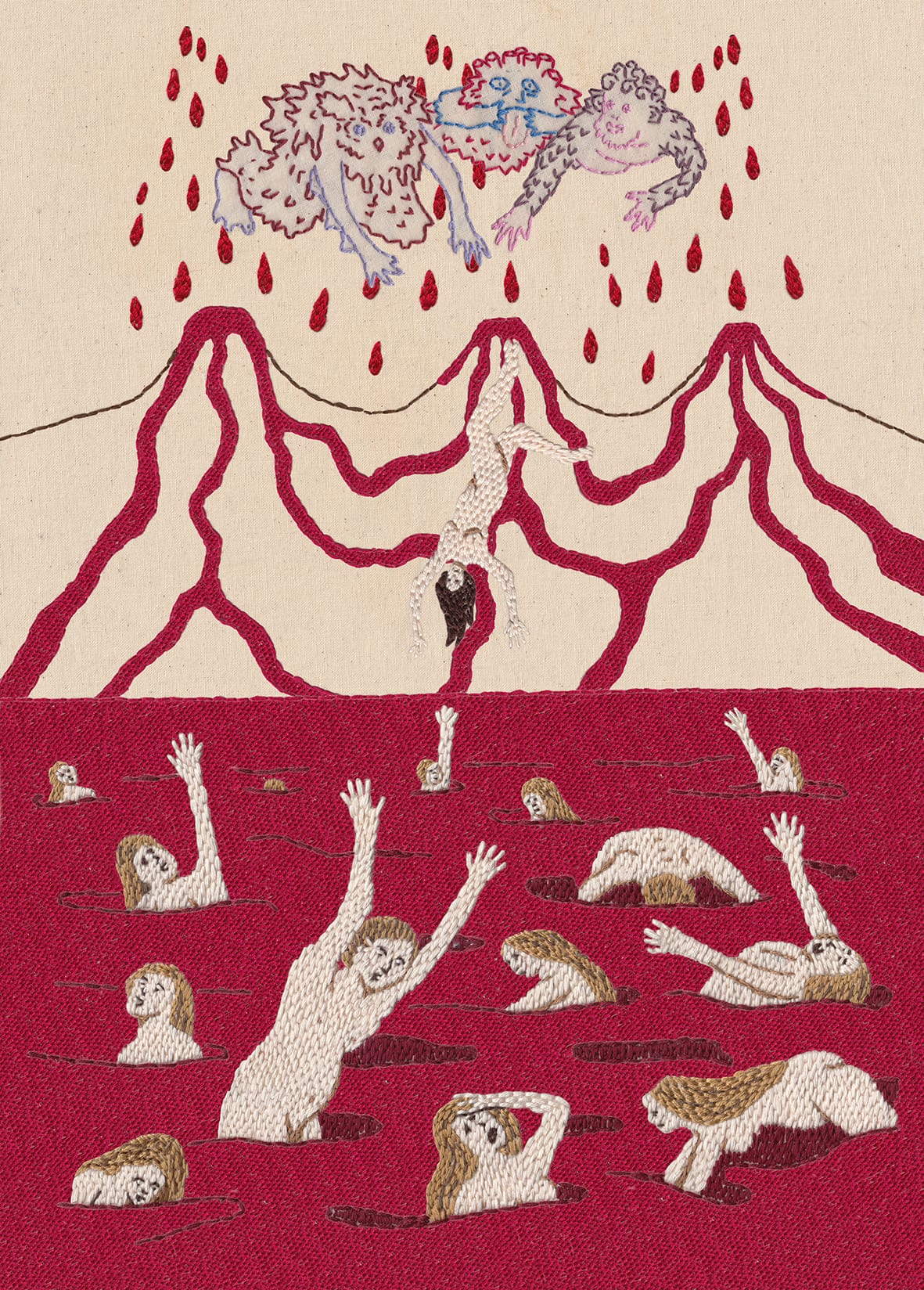
To the future, how will the physical production industry thrive in the digital space?
I remember being told by a journalist who worked for a cool blog back in 2007, that there would be no books being printed in ten years time. the technology that I was beginning to use in 2007 has enabled me to develop craft and fine art practices in my approach to comics, and to self publish books affordably. What people forget about technology is the ways that it enables us to be luddites.
Can there be a positive and enlightening intersection of AI and human creativity in the comic and zine world, and art in general?
Potentially, yes. Comics are incredibly good at immersing the reader in another subjectivity, and one of the things they have been really good at recently (and deserve more critical attention for doing) is representing the experience of online life in a thoughtful, revealing and critical way. Comics should use all available technologies self-reflexively to convey the experience of contemporary life. Generative, predictive, and algorithmically curated neo-liberalism is the element we now live in. Realistically, representing this condition will involve using generative AI in some form, and using it in a critical way can help to reveal the corporate logics in algorithms and the absences and biases in datasets. Other areas of the arts are already developing critical AI practices, and comics could offer a valuable contribution to this.
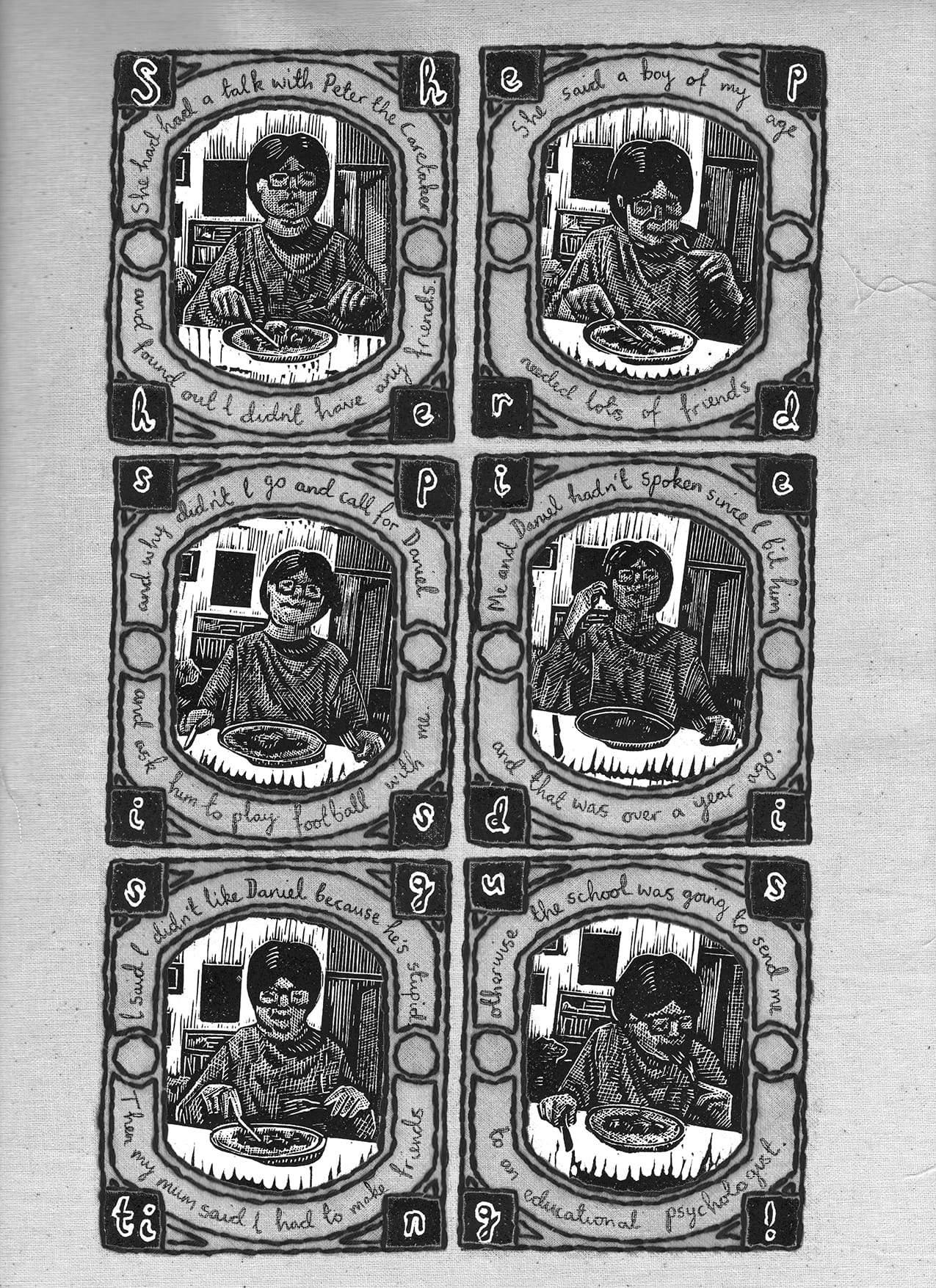
What are you watching/listening/reading at the moment that you can recommend to us and why?
I recently discovered Ed Askew, whose ‘Imperfection’ album is beautiful. I really enjoyed the manga ‘Mansect’ by Shinichi Koga
What advice would you give to anyone out there who is starting out on their creative or academic journey?
Work hard, trust your instincts and try to stay off social media.
We're constantly on the look out for new artists, creatives and initiatives to feature in TheNeverZine - so if you are, or know someone who is going their own way and doing their own thing on their own terms and would be a good fit to feature please smash that button below and get in contact. By talking to each other, and sharing our journeys, ideas and insights on creativity, art, mental health and resilience we can all create, share and thrive together. Nice thought that.
PS - Don't forget to subscribe below for more content from TheNeverPress 👇
